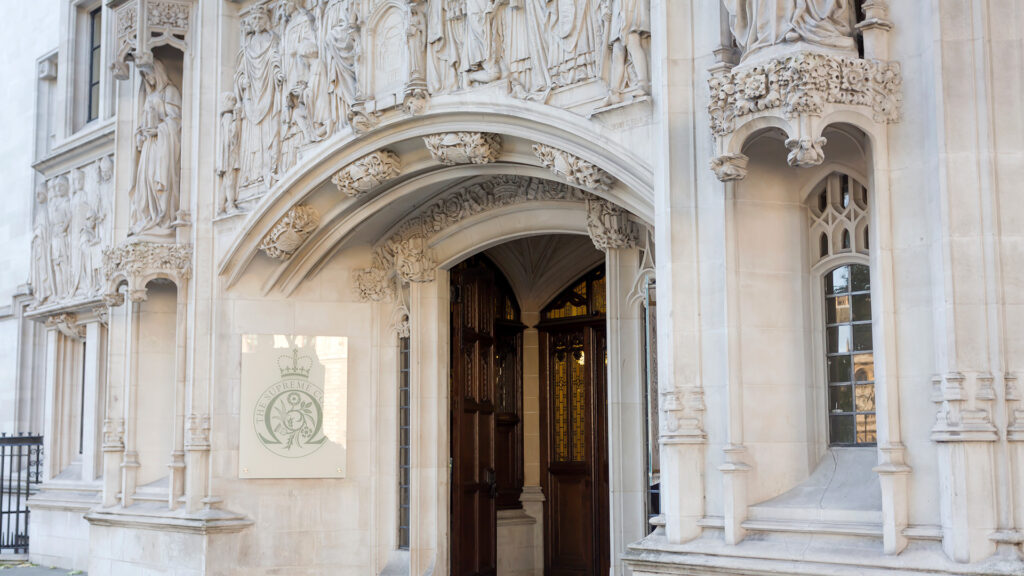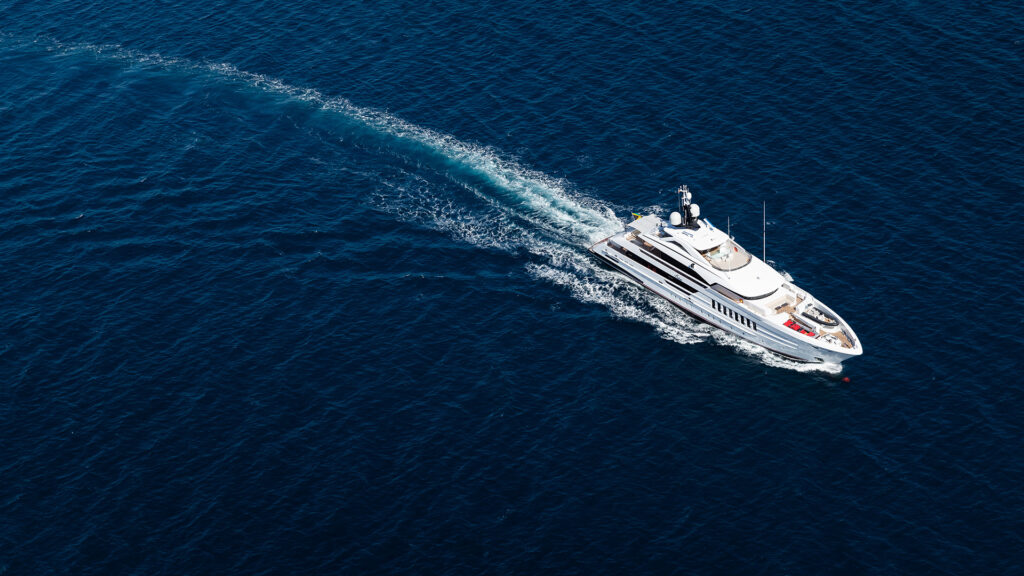Supreme Court of the United States Grants Certiorari to Finally Resolve Split in the Circuits over the Availability of Punitive Damages in Seamen’s Personal Injury Suits
In the aftermath of the Supreme Court’s landmark decision in Miles v. Apex Marine Corp.,1 federal and state courts have grappled with whether a seaman has the right to recover punitive damages under a claim of unseaworthiness. On December 7, 2018, the Supreme Court of the United States granted the petition for a writ of certiorari filed by The Dutra Group in The Dutra Group v. Batterton, which should resolve the issue.
As the Ninth Circuit Court of Appeals observed, this case presents an issue “of considerable importance in maritime law” that has “divided” the lower courts: whether punitive damages may be awarded to a seaman in a personal injury suit based on an alleged breach of the general maritime duty to provide a seaworthy vessel.2 In Dutra, the Ninth Circuit ruled that punitive damages are available on such a claim. That ruling, the court recognized, is in direct conflict with McBride v. Estis Well Serv., LLC,3 a recent decision of the en banc Fifth Circuit, which held that punitive damages are not available in unseaworthiness cases.
The disagreement between the Fifth and Ninth Circuits turns largely on how to reconcile the Supreme Court’s decisions in Miles v. Apex Marine Corp. and Atlantic Sounding Co. v. Townsend.4 In Miles, the Court unanimously held that damages for loss of society and lost future income may not be awarded in an unseaworthiness action under general maritime law.5 The Court stressed that Congress did not authorize either form of damages in negligence actions under the Jones Act,6 which provides remedies for seamen injured or killed in the course of their employment as a result of the employer’s negligence.7 The Court explained that respect for Congress’s preeminent role in maritime law required that the scope of recovery under the judge-made action for unseaworthiness – which emerged in its current form as a strict liability claim in the mid-twentieth century – be no more expansive than under the remedies Congress had authorized for negligence in the Jones Act.8
In Townsend, a closely divided Court held that punitive damages may be awarded in claims based on the separate general maritime doctrine of maintenance and cure. The Townsend Court stressed that “[t]he reasoning of Miles remains sound.”9 557 U.S. at 420. Nonetheless, the Court concluded that Miles did not control the scope of remedies for maintenance and cure, which (unlike unseaworthiness) was “well established” as a claim before the Jones Act was enacted, and which has “different origins” from and is “independent” of unseaworthiness.10 The Court also emphasized that there was a “common-law tradition of punitive damages” in the maritime context before the Jones Act was enacted, and it found “no evidence that claims for maintenance and cure were excluded from this general admiralty rule.”11
In Dutra, the Ninth Circuit concluded that Townsend rather than Miles governs punitive damages in unseaworthiness claims.12 Pointing to the Supreme Court’s language in Townsend that there was a “common-law tradition of punitive damages” in the maritime context before the Jones Act was enacted,13 the Ninth Circuit found “no persuasive reason to distinguish maintenance and cure actions from unseaworthiness actions with respect to the damages awardable.”14 Miles, according to the Ninth Circuit, precludes only nonpecuniary damages in unseaworthiness actions. But, the court reasoned, punitive damages are neither pecuniary nor nonpecuniary, and so Miles does not speak to the availability of punitive damages.15 By contrast, the Fifth Circuit concluded that punitive damages in unseaworthiness claims are precluded by the reasoning of Miles, which limited damages in unseaworthiness claims to those available for negligence under the Jones Act (which does not authorize punitive damages), and that Townsend, which concerns the distinct claim for maintenance and cure, is irrelevant to unseaworthiness actions.16
The courts of appeals – including two that hear the most admiralty cases – are thus irreconcilably divided on whether punitive damages are available in unseaworthiness actions and on how to read the Supreme Court’s two leading recent decisions on remedies in maritime actions.
Two amicus curiae briefs were filed in the Supreme Court. The Maritime Law Association of the United States (MLA), a nationwide bar association with a membership of approximately 2,600 attorneys, federal judges, law professors, and others interested in maritime law, cites amongst its objectives the advancement of reforms in the maritime law of the United States to promote uniformity. MLA’s brief notes that the Ninth Circuit’s ruling in Dutra conflicts with rulings of the First, Second, and Sixth Circuit Courts of Appeals and, in particular, the Fifth Circuit. The MLA brief further asserts that the conflict creates substantial uncertainty for maritime actors and those who advise them about the risks and potential exposure presented by litigation, and increases the risk of improper forum shopping. MLA therefore, without voicing support for either Dutra’s or Batteron’s argument, urged the Supreme Court to review the Ninth Cicruit’s decision in Dutra.
The second amicus brief was filed by At-Sea Processors Association, Pacific Seafood Processors Association, Groundfish Forum, National Fisheries Institute, Freezer Longline Coalition, and Alaska Bering Sea Crabbers. These entities are all associated with the U.S. fishing and processing industry in various capacities. As stated in their brief, each is a marine operator subject to the Jones Act and to general maritime law doctrines such as unseaworthiness. They note in their brief that the Ninth Circuit’s holding that punitive damages are available under the maritime doctrine of unseaworthiness, exposes a critical industry “to a potentially massive increase in damages exposure – a result that is mistaken as a matter of law and misguided as a matter of policy.” It urges the Supreme Court to grant review and reverse the Ninth Circuit’s judgment.
Recognizing the conflict and significance of the Ninth Circuit’s ruling, on December 7, 2018, the U.S. Supreme Court of the United States granted the petition for a writ of certiorari filed by The Dutra Group, and will review the Ninth Circuit’s decision. It is anticipated that the Supreme Court’s ruling will resolve the conflict and clarify whether punitive damages are recoverable in an admiralty case for any cause of action in addition to the arbitrary and capricious denial of maintenance and cure.
For further information, please contact the authors of this briefing:
James Brown
Partner and Master Mariner, Houston
T +1 (713) 706 1947
E jim.brown@hfw.com
Marc Kutner
Senior Associate, Houston
T +1 (713) 706 1942
E marc.kutner@hfw.com
Footnotes
- 498 U.S. 19 (1990).
- Batterton v. Dutra Grp., 880 F.3d 1089, 1090 (9th Cir. 2018), cert. granted, No. 18-266, 2018 WL 4185911 (U.S. Dec. 7, 2018).
- 768 F.3d 382, 388-391 (5th Cir. 2014), cert. denied, 135 S. Ct. 2310 (2015).
- 557 U.S. 404 (2009).
- Miles, 498 U.S. at 32-33, 36.
- 46 U.S.C. § 30104.
- Miles, 498 U.S. at 32.
- Id. at 32-33.
- Townsend, 557 U.S. at 420.
- Id. at 420, 423.
- Id. at 414-415, 418.
- Dutra, 880 F.3d at 1089, 1096.
- Townsend, 557 U.S. at 414.
- Dutra, 880 F.3d at 1096.
- Id., 880 F.3d at 1094-95.
- McBride, 768 F.3d at 388-391.
Download a PDF version of ‘Supreme Court of the United States Grants Certiorari to Finally Resolve Split in the Circuits over the Availability of Punitive Damages in Seamen’s Personal Injury Suits’









-1024x683.jpg)
